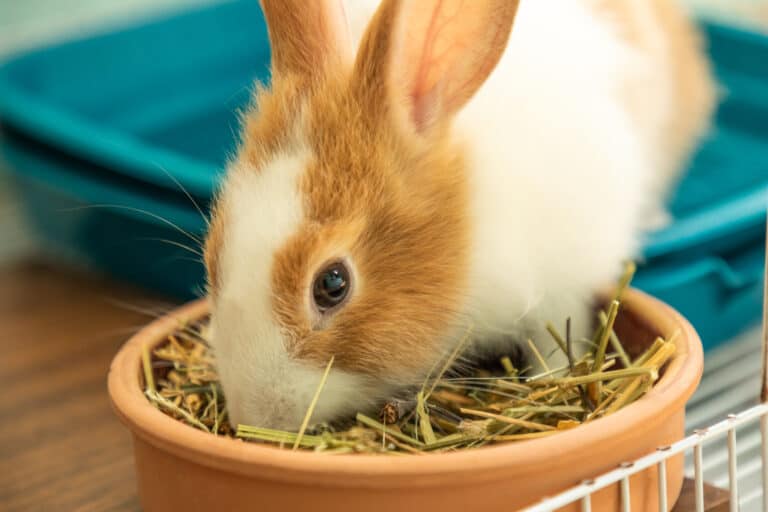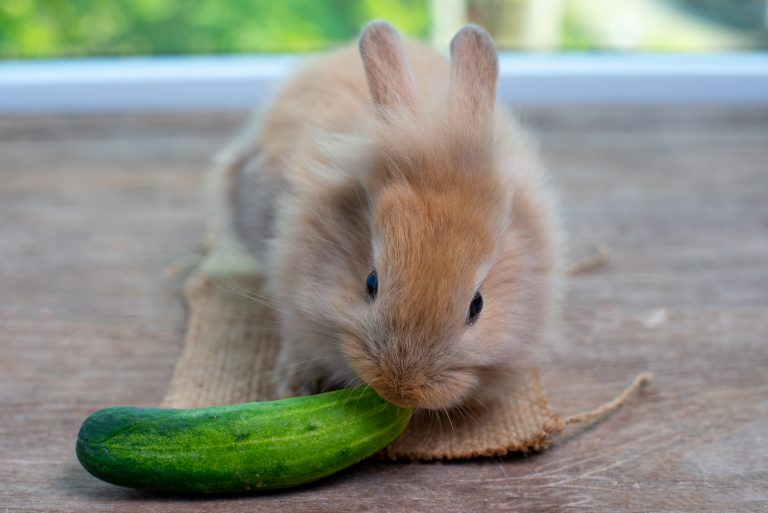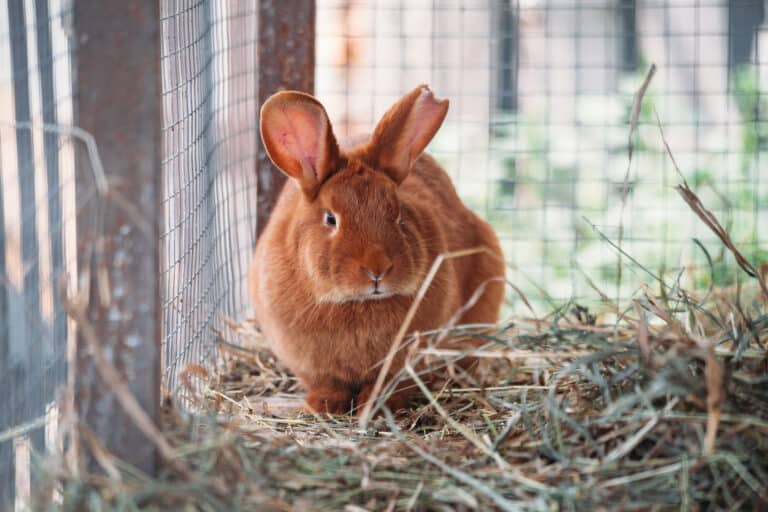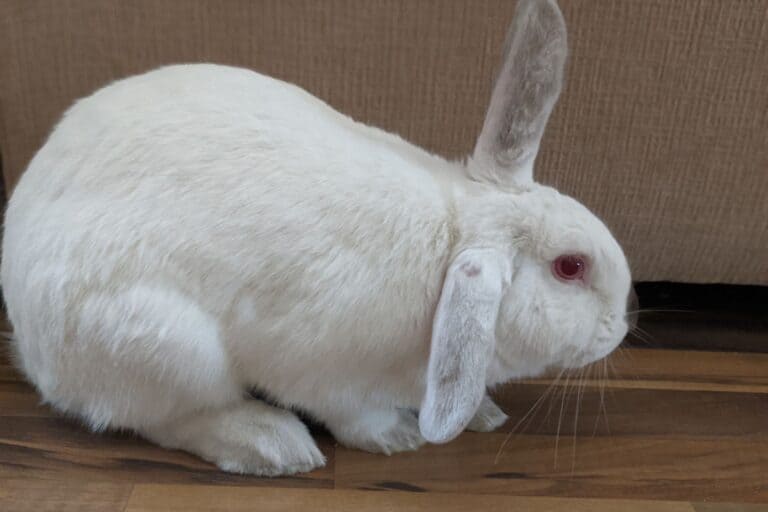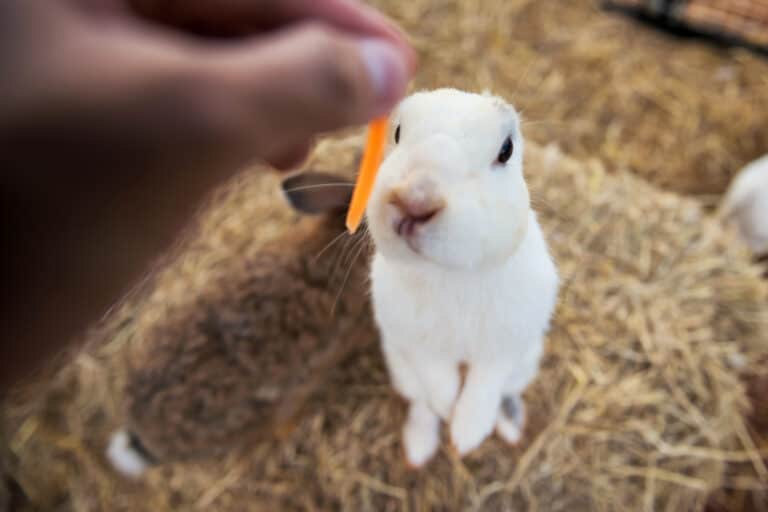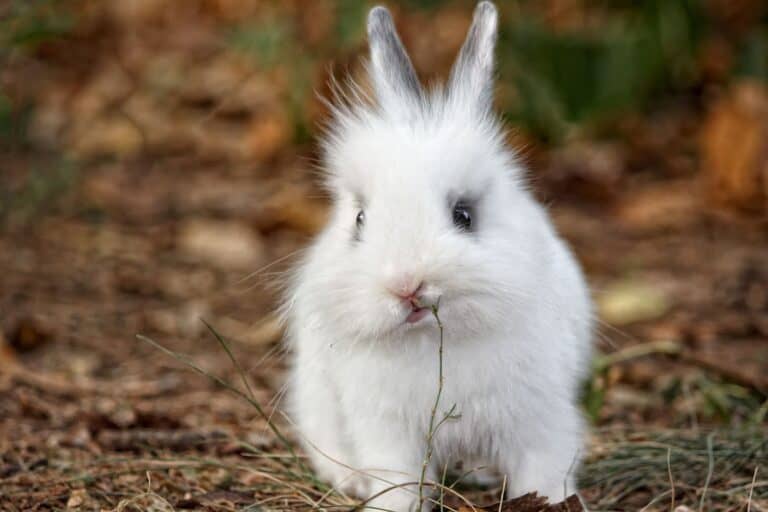Can Rabbits Eat Kale?
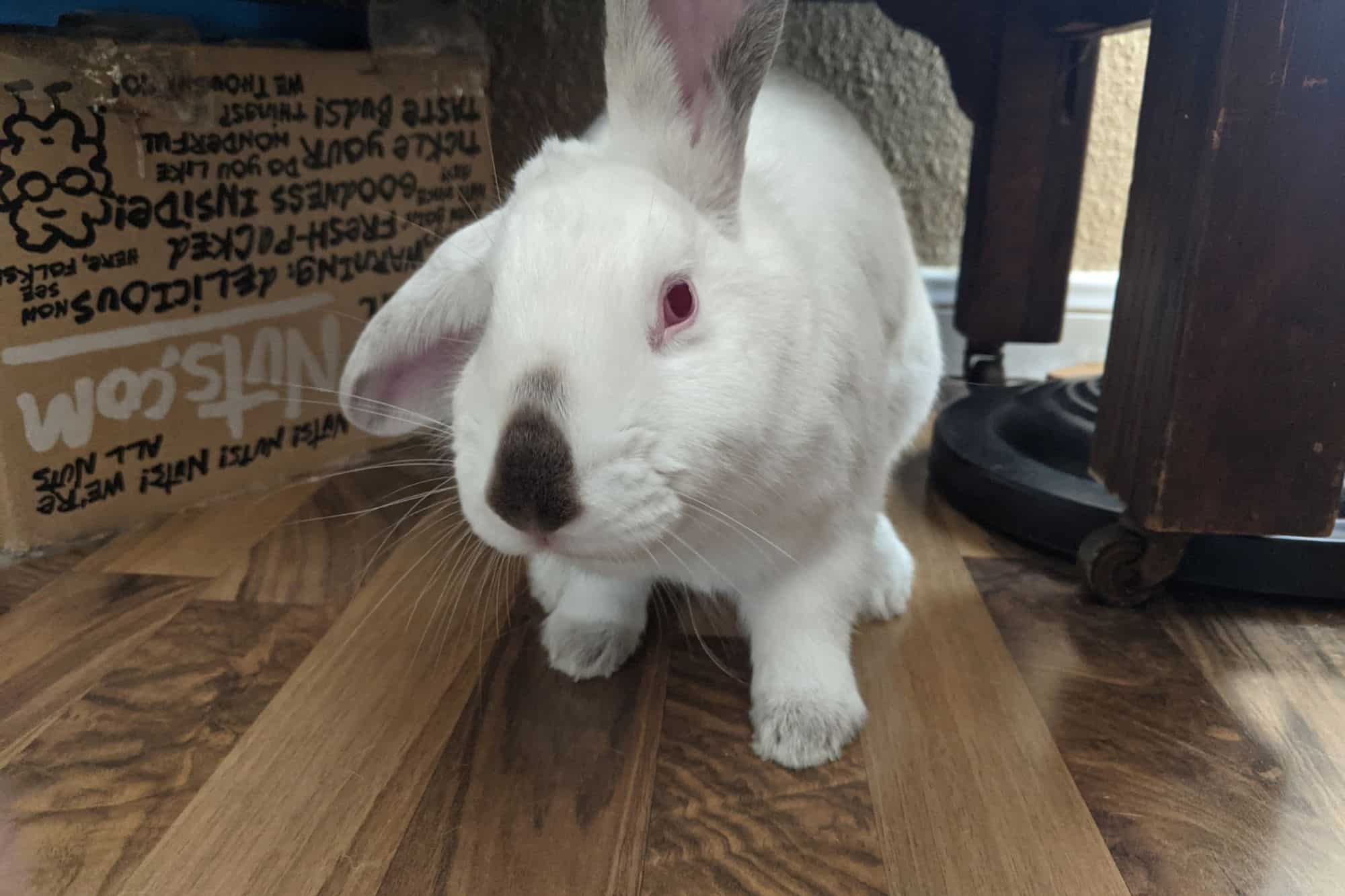
Often called a superfood, kale is popular among health-conscious individuals. When it comes to nutrition, you can’t go wrong with this veggie. That’s why bun parents who want to provide wholesome foods for their pet may ask, can rabbits eat kale?
This post contains affiliate links. Affiliate links support Every Bunny Welcome at no additional cost to you. I receive a commission if you choose to make a purchase through these links.
Benefits of Kale
Otherwise known as leaf cabbage, kale belongs to the Brassica Oleracea Acephala plant group. Other vegetables in this category include cauliflower, broccoli, cabbage, and Brussel sprouts, among others.
This dark, leafy veggie contains a lot of water that helps rabbits stay hydrated, and when it comes to nutrition, kale packs a wallop. Feeding this veggie to your bun will give him essential vitamins, such as vitamins C, K, A, and B6. It’s also a great source of minerals like copper, calcium, iron, potassium, manganese, and magnesium. Add its high fiber content, and you can understand why kale can help you turn your pet into one healthy bunny.
Can Rabbits Eat Kale?
With all the good stuff kale contains, it would be a shame if rabbits can’t eat the veggie. Luckily, they can. Like with most dark, leafy greens, kale is safe for rabbits, and even in the wild, you’ll likely see them munching on kale.
That said, you shouldn’t go overboard and feed your bun all the kale he wants. Anything in excess can be bad for your pet, and the same goes for kale. Due to the veggie’s high calcium content, giving too much of it to rabbits can cause more harm than good.
An adult, medium-sized bun needs around 510 milligrams of calcium to make his body function properly. A cup of kale contains 101 milligrams, which shows how easy it is to give your pet more than what he requires.
Kale may not also be a good food choice for some rabbits. These include baby and juvenile buns, as well as those with digestive issues.
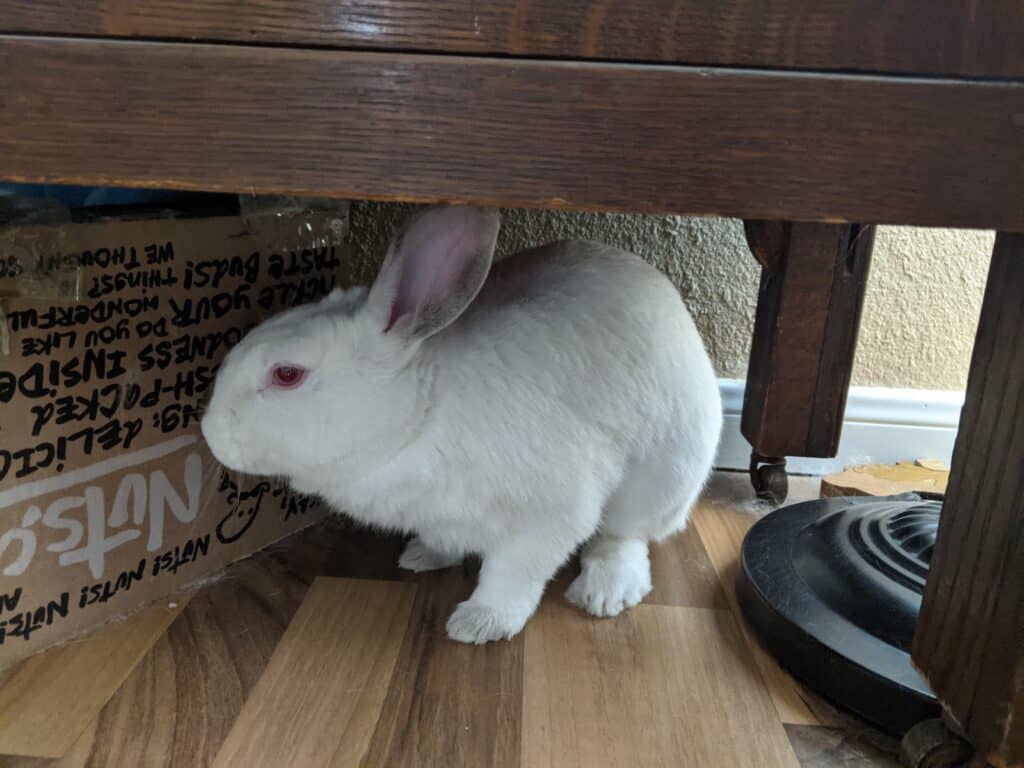
How Much Can They Eat?
The plant food belonging to the brassica group can sometimes cause some digestive problems. That’s why it’s not a good idea to feed kale (which belongs to the genus) on consecutive days. Giving kale only once or twice a week will give your bun’s tummy ample time to process everything and avoid gas buildup in his gut.
The feeding portions? One leaf for larger rabbits and half a leaf for smaller buns will do, especially if you’re giving the veggie for the first time. We keep saying that rabbits have very sensitive digestive tracts, so you’ll need to slowly incorporate kale into their diet.
If your bun doesn’t show any adverse reaction, such as loose poop, signs of GI distress, constipation, and the like, you can give him the veggie again after a couple of days. Increase the portions slowly until his tummy adjusts fully to the new food but give it only around 2-3 times a week.
Stop serving him kale if you see any indication that it doesn’t agree with his digestive system.
Dangers of Too Much Kale
Yes, we said that kale makes a great food option for your bun. Still, consuming too much of it carries some risks.
Gastrointestinal Problems
Stomach distress, such as bloating and gas pain, may occur from eating a lot of kale. That’s due to the sulfurous compounds that veggies belonging to the brassica genus contain. Bloating can be painful and may even be deadly for rabbits.
Unlike other animals, like dogs, for instance, rabbits can’t pass gas. As a result, a buildup of gas can interfere with normal digestive functions and, in turn, may lead to gastrointestinal (GI) stasis. GI stasis is a serious condition that can have severe consequences.
Bladder Stones
Kale’s oxalate content is relatively low. However, overconsumption can cause problems over time. Oxalates are acids, and a buildup in your bun’s system may cause bladder stones.
Kidney Damage
Kale is rich in calcium, and for rabbits, several health issues could arise from consuming too much of this mineral. Kidney stones are just one of those health problems. Urinary issues, bladder sludge, and bladder stones may also develop in buns who consume too many calcium-packed foods.
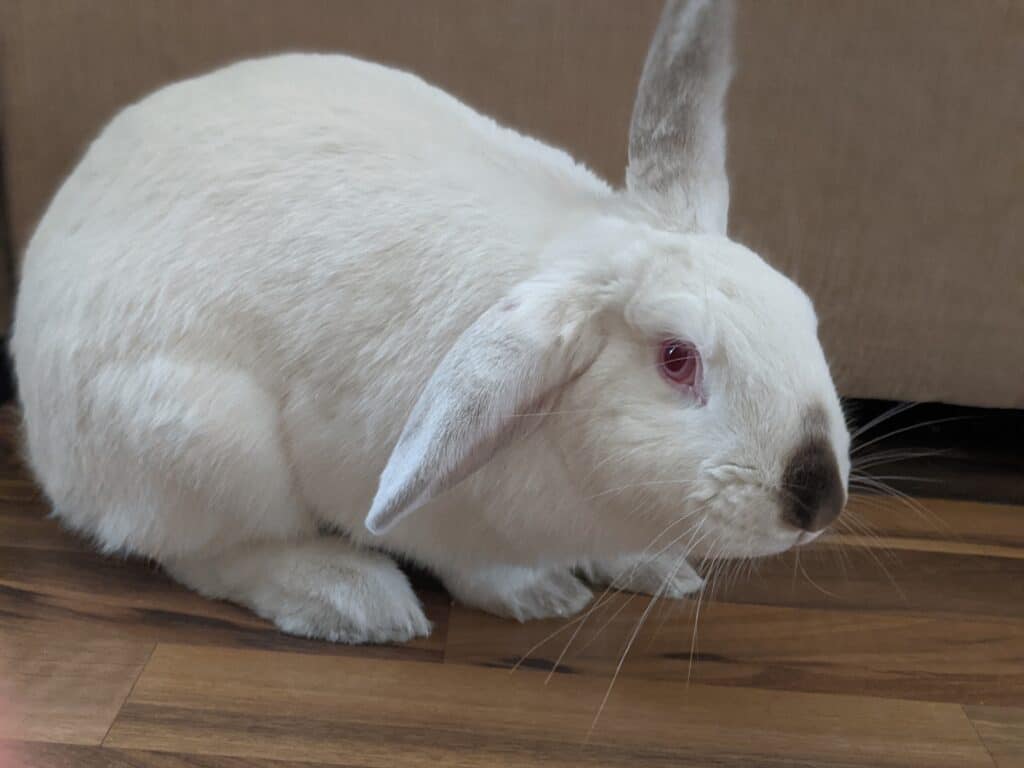
Healthy Alternatives
Aside from hay, which should comprise the bulk of your bun’s meals, rabbits need various fruits and veggies to round up their nutrition. Since kale may not always agree with your pet’s digestive system, you can choose from other healthy veggies.
Here are just some of them:
- Romaine lettuce
- Celery leaves
- Carrot tops
- Squash
- Cauliflower
- Peppers
- Artichoke leaves
- Broccoli greens
- Bok choy
- Spinach
How to Feed Kale to Your Bun
As much as possible, look for organic sources of kale. Wash the veggie thoroughly to remove pesticide traces, dirt, and debris that can harm your rabbit. Mix the kale with other vegetables but make sure you don’t combine it with those that also contain oxalic acid. These include mustard greens, parsley, and spinach, to name a few.
FAQs
Many bun parents would like to know what forms of kale they can give to their fur baby. Let’s tackle some of those questions.
Kale stems have a higher fiber content than the leaves, making them great food options for your pet. However, it’s best to cut the stalks into smaller pieces so your bun won’t choke on them.
Unlike other veggies that lose their crunchiness when frozen, kale maintains its texture. As such, there’s no problem if you give frozen kale to your pet. In fact, this is one excellent way of helping your bun keep cool when the weather is hot
Kale is better served raw than cooked as cooking will give a mushy and watery texture to the veggie that buns find unappealing. Also, a rabbit’s digestive system finds it difficult to process cooked, so feed only raw kale to your pet.
Yes, but only if no flavorings or fat is added to the kale. Avoid giving seasoned kale to your rabbit.
Kale may be a superfood for humans, but you don’t have to feed it to your bun if his digestive system reacts to it. Instead, choose from other healthy and more tummy-friendly alternatives. However, if your fur baby tolerates it well, he will benefit from kale’s essential nutrients, so giving him a small serving will be a good idea.
More on Rabbit’s Diet
- Is Orchard Hay Good for Rabbits?
- The Best Lettuce for Rabbits: What Type Can They Eat
- Complete Guide to the Best Hay For Rabbits: Reviews & More
- What Can You Feed Wild Rabbits: A Comprehensive Guide
- Can Rabbits Have Cabbage? What You Need to Know!
We hope you enjoyed this post! If you did, will you give it a share or two 🙂 Thank you! ~from Every Bunny Welcome


